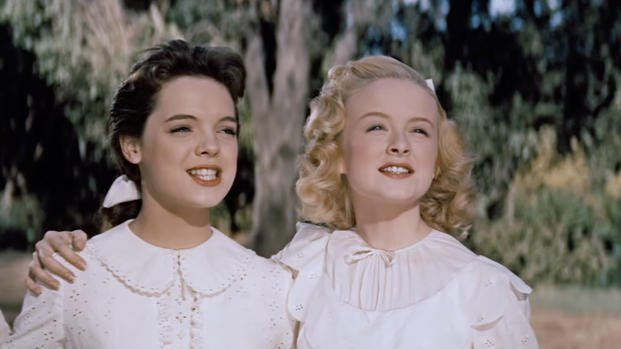Vince Gilligan and Rhea Seehorn reunite for a mysterious Apple TV+ sci-fi drama that turns bliss into a battlefield.
Vince Gilligan has always specialized in showing ordinary people under extraordinary moral pressure. Breaking Bad turned mild-mannered teacher Walter White, played by Bryan Cranston, into a kingpin. Better Call Saul, headlined by comedian-turned-unlikely-action-star Bob Odenkirk, followed a small-time hustler’s slow transformation into a legend of compromise.
Now, with Apple TV+’s upcoming series Pluribus, Gilligan is stepping into new terrain, replacing desert drug labs with pastel perfection and demands that its heroine “save the world from happiness.”
That’s not speculation; it’s right there in the official logline from Apple TV+, and it's the vibe you get from the trailer.
Pluribus — Official Trailer | Apple TV
“A genre-bending original in which the most miserable person on Earth must save the world from happiness.”

Meet The World’s Most Miserable Hero
Everyone wants to find joy in their lives—but real joy, the kind you earn by making the right movies, not the false kind, and especially if it comes from an infection. That’s the dilemma awaiting our hero in Vince Gilligan’s new series. The trailer introduces Rhea Seehorn (best known from Better Call Saul) as Carol, a woman seemingly immune—or outright resistant—to the strange wave of joy sweeping across the world. While her neighbors beam through perfectly arranged picnics and televised smiles, Carol scowls, mutters, and tosses a silver-plattered breakfast straight into the trash.
Gilligan told Entertainment Weekly that Carol is:
... a bit of a damaged hero, but she’s a hero nonetheless…the world’s most miserable person desperately trying to save the planet from happiness.
It’s a setup as odd as it is intriguing, inviting laughter and unease. Imagine an entire neighborhood of nothing but TikTokers spouting toxic positivity. Yikes.
Happiness as Contagion—or Command
Apple’s key art features a petri dish and a Q-tip etching a smiley face into the yellow goo. The tagline accompanies it:
“Happiness is Contagious”
… make the metaphor hard to miss. Whether this global wave of joy stems from biological warfare, advanced technology, or social manipulation, one thing is clear: it spreads.
Gilligan hasn’t revealed the mechanism of transmission, as he’s deliberately been cagey about the show's premise, but the implications are chilling. What happens when contentment itself becomes compulsory?
For service members and veterans who understand morale as both a lifeline and a liability, the premise hits close to home. Units with high morale and low stress tend to perform better—but when a society demands constant positivity, that strength can turn brittle. Pluribus seems poised to explore that.

America’s Oldest National Motto Is Being Flipped On Its Head
The title, Pluribus, is deceptively simple. In Latin, it means “of the many,” most familiar from the U.S. motto E Pluribus Unum—“Out of many, one.” But in Gilligan’s deft storytelling hands, the phrase might be turning inside out.
Instead of celebrating diversity forming unity, Pluribus appears to warn of unity consuming diversity, of individuality erased under enforced joy. Out of many, one emotion.
The petri-dish smiley, the Stepford-bright cinematography, the repetition of that word “contagious”: all hint that the show’s real antagonist isn’t a person but a principle, and that being: the collective itself when it stops tolerating difference.
That interpretation fits Gilligan’s career-long fascination with systems that demand moral conformity: the cartel in Breaking Bad, the law in Better Call Saul, and, perhaps now, the entire human race under one mandated mood.
“You’ll Never Walk Alone”: A Hymn Turned Haunting
The song playing beneath the trailer, “You’ll Never Walk Alone” by The Righteous Brothers, adds unexpected emotional weight and chilling irony.

Initially written by Rodgers and Hammerstein for the 1945 musical Carousel, the song has long been a global anthem of solidarity and perseverance. Sung at military memorials, sporting events, and even NASA launches, it embodies hope through hardship.
But in Pluribus, that faith sounds corrupted. When paired with images of beaming crowds and Carol’s grim resistance, the lyric “At the end of the storm is a golden sky” morphs into propaganda. The anthem of endurance becomes a lullaby for obedience.
For Carol, the only person who refuses the “happiness contagion,” loneliness is a sort of freedom. She is the only one who truly walks alone. The song becomes her moral counterpoint. Where the world sings together, she listens to the silence. It’s a haunting inversion.

A Breaking Bad Universe Reunion
Seehorn’s reunion with Gilligan is more than a casting reunion, but is a philosophical one. In Saul, her Kim Wexler embodied the tension between ethics and survival. In Pluribus, Carol seems to represent the tension between truth and comfort.
Seehorn herself told Deadline that Gilligan:
…he pushes that [genre] to a limit that was both very thought-provoking and upsetting sometimes, and other times, so, so funny. It really swings for the fences. I had so much fun.
The trailer confirms that mix. That blend of tones could make Pluribus less a traditional thriller and more a moral thought experiment, the kind of storytelling that asks viewers not just what’s happening, but what it says about them.
What We Know About Pluribus So Far:
- Release Date: November 7 (Apple TV+) with a two-episode premiere
- Episodes: Nine, dropping weekly through December 26
- Cast: Rhea Seehorn, Karolina Wydra, Carlos-Manuel Vesga, with Miriam Shor and Samba Schutte
- Tagline: “Happiness Is Contagious”
- Genre: Officially “genre-bending”; the trailer hints at sci-fi, psychological thriller, and dark comedy
The first trailer keeps things vague but visually striking: yellow filters, synchronized smiles, and Seehorn’s lone frown cutting through the haze. It’s part Black Mirror, part Stepford Wives, but filtered through Gilligan’s patient pacing and moral curiosity.

The Paradox of Mandatory Joy
If Breaking Bad explored ambition gone toxic, Pluribus seems to explore optimism gone viral. The paradox is hauntingly modern, because in an age obsessed with positivity, self-help, and curated happiness, who gets left behind?
Social media already rewards smiles and punishes dissent. Gilligan appears to take that impulse to its extreme—imagine a world where every algorithm, every neighbor, every government insists on your bliss.
For a creator who once built a criminal empire out of cancer bills and frustration, it’s a natural evolution. If Walter White’s downfall was pride, Carol’s burden might be clarity—the inability to lose herself in the collective trance.
Closing Thoughts
Pluribus could have been a simple satire about toxic positivity. Instead, it looks like something larger: a parable about the weaponization of joy and the courage it takes to stay unhappy in a smiling world.
In the trailer’s last shot, Carol stares at a crowd chanting in unison, all blissed out, and whispers, “I just want it to stop.”
Maybe Gilligan’s message is that saving the world isn’t about defeating evil—it’s about defending the right to feel bad sometimes. And in a culture that treats happiness as both commodity and commandment, that might be the most rebellious act of all.















